- Home
- Ian Mcewan
Machines Like Me Page 11
Machines Like Me Read online
Page 11
Global temperatures rose. As the air in the cities became cleaner, the temperature rose faster. Everything was rising – hopes and despair, misery, boredom and opportunity. There was more of everything. It was a time of plenty.
I calculated that my earnings from online trading were just below the national average wage. I should have been content. I had my freedom. No office, no boss, no daily commute. No hierarchies to climb. But inflation was at seventeen per cent. I was at one with an embittered workforce. We were all getting poorer by the week. Before Adam’s arrival I had been on marches, an imposter as I followed behind proud trade union banners up Whitehall to speeches in Trafalgar Square. I wasn’t a worker. I made or invented or serviced nothing and gave nothing to the common good. Moving figures around on my screen, looking for quick gains, I contributed as much as the chain-smoking fellows outside the betting shop on the corner of my street.
On one march, a crude robot made of dustbins and tin cans was hanged from a gibbet by Nelson’s Column. Benn, the keynote speaker, gestured at it from the platform and condemned the conception as Luddite. In an age of advanced mechanisation and artificial intelligence, he told the crowd, jobs could no longer be protected. Not in a dynamic, inventive, globalised economy. Jobs-for-life was old hat. There were boos and slow hand-clapping. Many in the crowd missed what came next. Flexibility at work had to be combined with security – for all. It wasn’t jobs we had to protect, it was the well-being of workers. Infrastructure investment, training, higher education and a universal wage. Robots would soon be generating great wealth in the economy. They must be taxed. Workers must own an equity share in the machines that were disrupting or annihilating their jobs. In a crowd that spilled across the square, right up the steps to the doors of the National Gallery there was a baffled near-silence, with scattered applause as well as catcalls. Some thought that the prime minister herself had said much the same thing, minus the universal credit. Had the new Leader of the Opposition been turned by his membership of the Privy Council, by a visit to the White House, by tea with the Queen? The rally broke up in a mood of confusion and despondency. What most people remembered, what made the headlines, was that Tony Benn had told his supporters that he didn’t care about their jobs.
An enlightened Transport and General Workers Union would not have been tempted by shares in Adam. He produced even less than me. I at least paid tax on my meagre profit. He idled about the house, staring into the middle distance, ‘thinking’.
‘What are you doing?’
‘I’m pursuing certain thoughts. But if there’s something I can help with—’
‘What thoughts?’
‘Difficult to put into words.’
I confronted him at last, two days after Mark’s visit. ‘So, the other night. You made love to Miranda.’
I’ll say this for his programmers. He looked startled. But he said nothing. I hadn’t asked a question.
I said, ‘How do you feel about that now?’ I saw in his face that fleeting paralysis.
‘I feel I’ve let you down.’
‘You mean you betrayed me, caused me great distress.’
‘Yes, I caused you great distress.’
Mirroring. A machine response, endorsing the last sentence spoken.
I said, ‘Listen carefully. You are now going to promise me that it will never happen again.’
He replied too immediately for my liking, ‘I promise it will never happen again.’
‘Spell it out. Let me hear it.’
‘I promise you that I will never again make love to Miranda.’
As I turned away he said, ‘But …’
‘But what?’
‘I can’t help my feelings. You have to allow me my feelings.’
I thought for a moment. ‘Do you really feel anything at all?’
‘That’s not a question I can—’
‘Answer it.’
‘I feel things profoundly. More than I can say.’
‘Difficult to prove,’ I said.
‘Indeed. An ancient problem.’
We left it at that.
Mark’s departure had an effect on Miranda. For two or three days, she was lacklustre. She tried to read but her concentration was poor. The Corn Laws lost their fascination. She didn’t eat much. I made minestrone soup and took some upstairs. She ate like an invalid, and soon pushed the bowl away. At no point during this time did she mention the death threat. She hadn’t forgiven Adam for betraying her court secrets or for calling in the social workers without her consent. One evening she asked me to stay with her. On the bed she lay on my arm, then we kissed. Our lovemaking was constrained. I was distracted by the thought of Adam’s presence and even imagined I detected the scent of warm electronics on her sheets. There was little satisfaction for us, and eventually we turned away, disappointed.
One afternoon we walked to Clapham Common. She wanted me to show her Mark’s swing park. On our way back, we went into Holy Trinity Church. Three women were arranging flowers near the altar. We sat in silence in a rear pew. At last, clumsily concealing my seriousness behind a joke, I told her that this was just the sort of rational church she and I could get married in. She murmured, ‘Please. Not that,’ as she uncoupled her arm from mine. I was offended and annoyed at myself. She in turn seemed repelled by me. On the walk home, a coolness between us set in that lasted into the following day.
That evening, downstairs, I consoled myself with a bottle of Minervois. It was the night of a storm engulfing the entire country as it rolled in from the Atlantic. A 70 mph gale. Stinging rain thrashed the windowpanes and penetrated one of the rotten frames and dripped into a bucket.
I said to Adam, ‘We have some unfinished business, you and I. What was Miranda’s accusation against Gorringe?’
He said, ‘There’s something I need to say.’
‘OK.’
‘I find myself in a difficult position.’
‘Yes?’
‘I made love to Miranda because she asked me to. I didn’t know how to refuse her without being impolite, or seeming to reject her somehow. I knew you’d be angry.’
‘Did you take any pleasure in it?’
‘Of course I did. Absolutely.’
I didn’t like his emphasis but I kept my expression blank.
He said, ‘I found out about Peter Gorringe for myself. She swore me to secrecy. Then you demanded to know and I had to tell you. Or start to. She heard me and was angry. You see the difficulty.’
‘Up to a point.’
‘Serving two masters.’
I said, ‘So you’re not going to tell me about this accusation.’
‘I can’t. I promised a second time.’
‘When?’
‘After they took the boy away.’
We were silent while I took this in.
Then Adam said, ‘There’s something else.’
In the low light from the lamp suspended over the kitchen table the hardness in his features was softened. He looked beautiful, even noble. A muscle in his high cheekbone rippled. I saw also that his lower lip was quivering. I waited.
‘I could do nothing about this,’ he said.
Before he started to explain, I knew what was coming. Ridiculous!
‘I’m in love with her.’
My pulse rate didn’t increase, but my heart felt uncomfortable in my chest, as though mishandled and left lying at a rough angle.
I said, ‘How can you possibly be in love?’
‘Please don’t insult me.’
But I wanted to. ‘There must be a problem with your processing units.’
He crossed his arms and rested them on the table. Leaning forwards, he spoke softly. ‘Then there’s nothing more to say.’
I too crossed my arms, I too leaned forwards across the table. Our faces were barely a foot apart. I too spoke softly. ‘You’re wrong. There are many things to say and this is the first. Existentially, this is not your territory. In every conceivable sense, you’re trespassing.�
��
I was playing in a melodrama. I took him only half seriously and was rather enjoying this game of stags-at-rut. As I was speaking, he leaned back in his chair and let his arms drop to his side.
He said, ‘I understand. But I don’t have a choice. I was made to love her.’
‘Oh, come on!’
‘I mean it literally. I now know that she had a hand in shaping my personality. She must have had a plan. This is what she chose. I swear I’ll keep my promise to you, but I can’t help loving her. I don’t want to stop. As Schopenhauer said about free will, you can choose whatever you desire, but you’re not free to choose your desires. I also know that it was your idea to let her have a hand in making me what I am. Ultimately, responsibility for the situation rests with you.’
The situation? Now it was my turn to lean back from the table. I slumped in my chair and for a minute I withdrew into thoughts of myself and Miranda. I too had no choice in love. I thought of the relevant section in the user’s handbook. There were pages I had skimmed of tables, one spectrum after another on a scale of one to ten. The sort of person I like or I adore or I love or cannot resist. While she and I were settling into our nightly routine, she was fashioning a man who was bound to love her. Some self-knowledge would have been required, some setting in motion. She would not need to love this man, this figurine, in return. As with Adam, so with me. She had wrapped us in a common fate.
I got up from the table and crossed the room to the window. The south-westerly wind was still hurling the downpour across the garden fences, against the pane. The bucket on the floor was near to overflowing. I picked it up and emptied it into the kitchen sink. The water was gin-clear, as trout fishermen say. The solution too was clear, at least in the immediate term. Time to be gained for reflection. I went back to the window with the bucket. I bent down and set it in place. I was about to do the sensible thing. I approached the table and as I passed behind Adam, I reached for the special place low on his neck. My knuckles brushed against his skin. As I positioned my forefinger, he turned in his chair and his right hand rose up to encircle my wrist. The grip was ferocious. As it grew tighter, I dropped to my knees and concentrated on denying him the satisfaction of the slightest murmur of pain, even when I heard something snap.
Adam heard it too and was instantly apologetic. He let go of me. ‘Charlie, I believe I’ve broken something. I really didn’t mean to. I’m truly sorry. Are you in a lot of pain? But please, I don’t want you or Miranda ever to touch that place again.’
I discovered the next morning, after a five-hour wait and an X-ray in the local Accident and Emergency department, that an important bone in my wrist was compromised. It was a messy break, a partly displaced scaphoid fracture, and it would take months to heal.
FIVE
When I got back from the hospital, an hour after lunch, Miranda was waiting for me. She intercepted me in the hall by her front door. We’d already been talking on the phone while I waited to be treated and I had a lot more to say, and I had some questions too. But she led me upstairs to her bedroom and there my words died in my throat. I relaxed into her concern for me. I was encased in plaster from elbow to wrist. While we made love, I protected my arm with a pillow. We passed into the sublime. At least for a while, she was personal, as well as inventive, she was solicitous, and joyous, and so was I. It was me she was with, not any capable man. I didn’t dare threaten with questions the novel and exalted feelings that passed between us. I couldn’t bring myself to ask her about Peter Gorringe, or about what she had told the court, or tell her what I had already discovered about the case while sitting in Accident and Emergency. I didn’t ask her whether she knew that Adam was ‘in love’ with her, or whether she had intended to dispose him to be so. I didn’t want to refer to the coolness between us after I’d mentioned marriage in Holy Trinity Church. How could I when at one point she pressed my face between her palms and looked into my eyes and shook her head, as if in wonder?
Afterwards, I remained silent on these subjects because I greedily thought that within the half-hour we would be going back to her bed, even though she was pulling away from me again as we drank coffee in her kitchen. I was happy to believe that all questions and tensions would be settled later. We talked now in a businesslike way, first about Mark. We agreed to try to find out what was happening to him. She was concerned about Adam. She thought I should take him back to the shop for a check-up. She still held to her plan for the three of us to drive to Salisbury to visit her father. I didn’t say that the prospect of us packed into my small car, spending the entire day covering for Adam and being polite to a difficult, dying man, had no appeal. I was keen to want whatever she wanted.
We didn’t go back to bed. A silence forced its way between us. I could see that she was already withdrawing into her private world and I didn’t know what to say. Besides, she had a seminar at King’s, in the Strand. I decided to settle my feelings by avoiding Adam downstairs and going straight out for a stroll on the Common. There, I walked up and down for two hours. My inaccessible wrist itched as I thought about Miranda. I didn’t know how we had traversed so smoothly from coolness to joy, from suspicion to ecstasy, and from there to an impersonal conversation about arrangements. She excited me and I couldn’t understand her. Perhaps some intelligible part of her had been damaged. I was anxious to dismiss that. It must be that she knew more about love, the deeper processes of love, than I did. So she was a force, but not of nature, not even of nurture. More like a psychological arrangement, or a theorem, a hypothesis, a glorious accident, like light falling on water. Wasn’t that of nature, and wasn’t this old hat, men thinking of women as blind forces? Then, might she resemble a counter-intuitive Euclidean proof? I couldn’t think of one. But after half an hour of fast walking, I thought I’d found the mathematical expression for her: her psyche, her desires and motives were inexorable, like prime numbers, simply and unpredictably there. More old hat, dressed as logic. I was in knots.
Pacing the littered grass, I numbed myself with truisms. She is who she is. She’s herself and that’s the end of it! She approaches love with caution because she knows how explosive it can be. As for her beauty, at my age, in my state, I was bound to think of it as a moral quality, as its own justification, the badge of her essential goodness, whatever she might actually do. And look what she had done – from my waist, almost to my knees, I still felt the afterglow of the most intense sensual pleasure I had ever known, and everywhere, its emotional correlate glowed too.
I had done two turns when I stopped in one of the larger, emptier expanses of the Common. A good way off, on all sides, the traffic turned about me like planets. Usually it oppressed me to reflect that every car contained a nexus of worries, memories and hopes as vital and complicated as my own. Today, I welcomed and forgave everyone. We would all turn out well. We were all bound together in our own overlapping but distinct forms of comedy. Others might also have a lover living with a death threat. But no one else with an arm in a cast had a machine for a love rival.
I headed home, north along the High Street, past the burned-out premises of the Anglo-Argentinian Friendship Society, past the stinking black heaps of plastic sacks, trebled in height since I was last this way. A German company had launched their bipedal, dustmen-automata in Glasgow. Public contempt was aroused because each one wore the perpetual grin of a contented worker. If Adam could make an origami boat in seconds, it should not have been much of a stretch to have a drone chuck sacks into the mechanical maw of a garbage truck. But the filth and dust caused failure in the knee and elbow joints, according to the Financial Times, and the cheaper batteries couldn’t survive an eight-hour shift. Each device cost five years’ wages of a dustman. Unlike Adam, it had an exoskeleton and weighed 350 pounds. The automata were falling behind on the work and on Sauchiehall Street, the bags were piling up. In Hanover, a robot dustman had stepped backwards into the path of an autonomous electric bus. Teething troubles. But in our part of the country, humans were
cheaper, and they remained on strike. General outrage had given way to apathy. Someone said on the radio that the stink was no more remarkable than in Calcutta or Dar es Salaam. We could all adapt.
Peter Gorringe. Once I had the name, it was easy to find the press reports as I waited with my throbbing wrist in Casualty. They dated back three years and, as I’d guessed, concerned a rape. As victim, Miranda’s name was withheld. In broad outline, the case resembled a thousand others: alcohol and a dispute over consent. She went one evening to Gorringe’s bedsit in the centre of town. They knew each other from school, which they had left only months before, but they were not close friends. That night, alone together, they drank a fair amount and around nine o’clock, after some kissing, which neither side denied, he forced himself on her, according to the prosecution. She tried to fight him off.
Both parties agreed that intercourse took place. Gorringe’s defence, provided through legal aid, argued that she had been a willing partner. Counsel made much of the fact that she had not called out for help during the alleged assault, nor had she left Gorringe’s place until two hours later, or made any distressed phone calls to police, parents or friends. The prosecution case was that she was in a state of shock. She had sat on the edge of the bed, half dressed, unable to move or speak. She left around eleven, went straight home, did not wake her father, lay on her bed crying until she fell asleep. The next morning she went to the local police station.

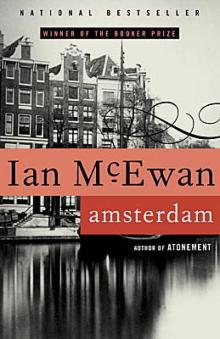 Amsterdam
Amsterdam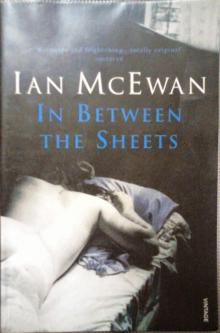 In Between the Sheets
In Between the Sheets Atonement
Atonement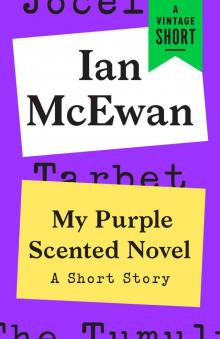 My Purple Scented Novel
My Purple Scented Novel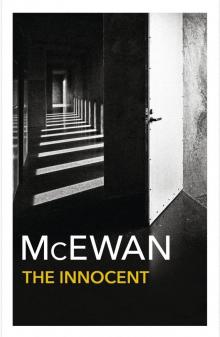 The Innocent
The Innocent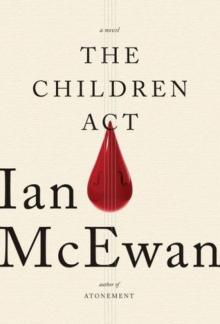 The Children Act
The Children Act Enduring Love
Enduring Love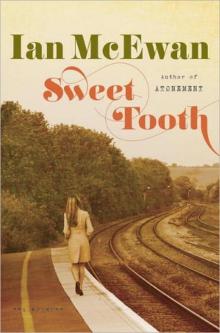 Sweet Tooth
Sweet Tooth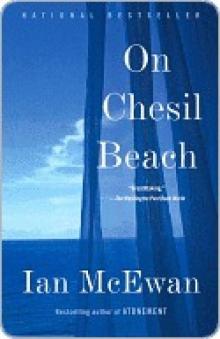 On Chesil Beach
On Chesil Beach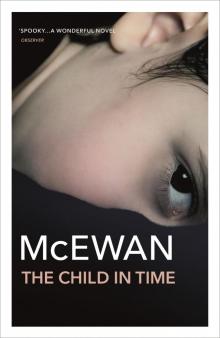 The Child in Time
The Child in Time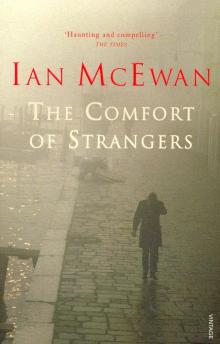 The Comfort of Strangers
The Comfort of Strangers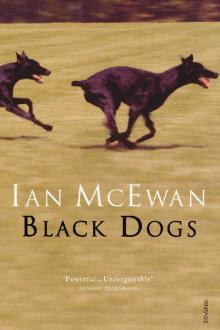 Black Dogs
Black Dogs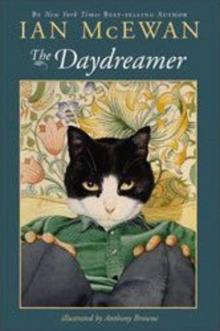 The Daydreamer
The Daydreamer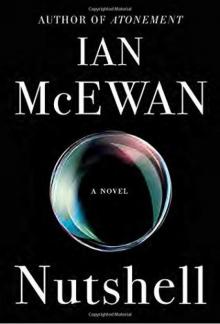 Nutshell
Nutshell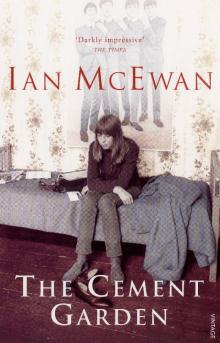 The Cement Garden
The Cement Garden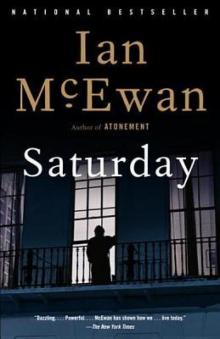 Saturday
Saturday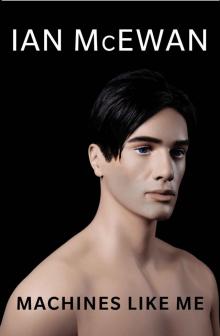 Machines Like Me
Machines Like Me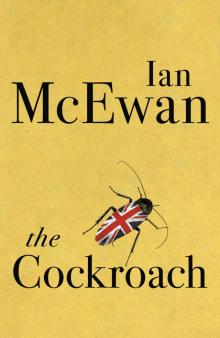 The Cockroach
The Cockroach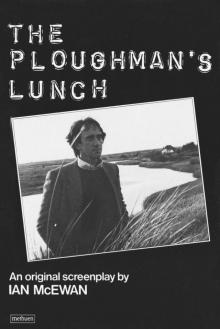 The Ploughman’s Lunch
The Ploughman’s Lunch